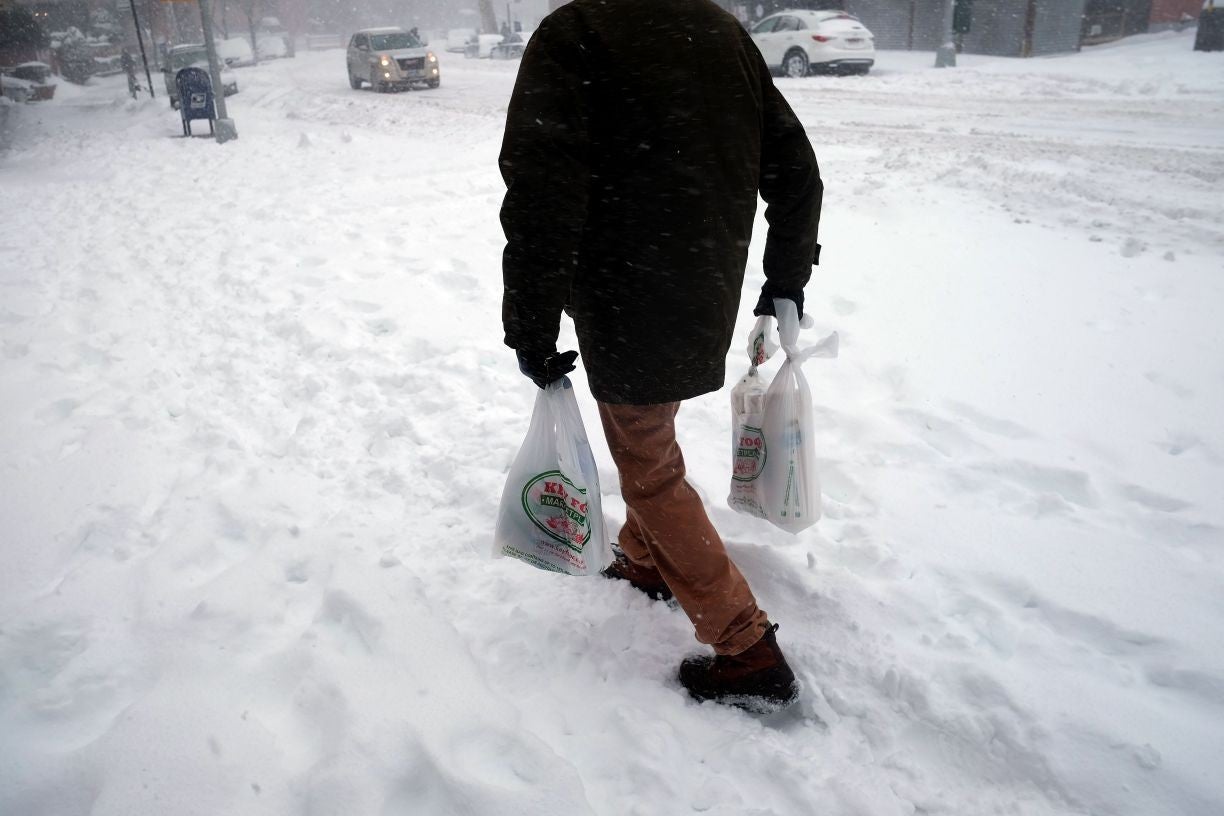Chill headwinds grip US as Japanese rates head sub-zero
A combination of weak exports, falling business investment and flagging consumer spending left the economy growing at an annualised rate of just 0.7 per cent in the final quarter of 2015

Your support helps us to tell the story
From reproductive rights to climate change to Big Tech, The Independent is on the ground when the story is developing. Whether it's investigating the financials of Elon Musk's pro-Trump PAC or producing our latest documentary, 'The A Word', which shines a light on the American women fighting for reproductive rights, we know how important it is to parse out the facts from the messaging.
At such a critical moment in US history, we need reporters on the ground. Your donation allows us to keep sending journalists to speak to both sides of the story.
The Independent is trusted by Americans across the entire political spectrum. And unlike many other quality news outlets, we choose not to lock Americans out of our reporting and analysis with paywalls. We believe quality journalism should be available to everyone, paid for by those who can afford it.
Your support makes all the difference.A sharp slowdown in America has raised concerns about the health of the world’s biggest economy, casting doubt on further interest rate rises from the US Federal Reserve this year.
A combination of weak exports, falling business investment and flagging consumer spending left the economy growing at an annualised rate of just 0.7 per cent in the final quarter of 2015 – the worst since the US was hit by a savage winter a year earlier and well below the 2 per cent seen in the three months from July to September.
The figures were released just a month after the Fed raised interest rates for the first time in nearly a decade, when forecasts published alongside its decision hinted at up to four more rate increases this year, to 1.5 per cent. Yesterday, economists questioned the wisdom of such a move and said further moves in 2016 were unlikely.
Nina Skero, of the Centre for Economics and Business Research, said: “The slowdown sheds a rather critical light on the Fed’s decision to raise interest rates in December… For the sake of credibility, it is unlikely that the Fed will reverse its December decision, but rates are likely to stay at their current level until 2017.”
The detailed figures showed cutbacks in business spending, which fell at an annual pace of 1.8 per cent, stemming partly from a plunge in oil and gas investment. Consumer spending, which accounts for two-thirds of the US economy, rose by 2.2 per cent in the fourth quarter, compared with 3 per cent growth in the third quarter, and the strength of the dollar hit exports.
The gloomy figures came as economic weakness prompted the Bank of Japan (BoJ) to join the growing band of central banks resorting to negative interest rates to fend off deflation and spur growth. It is imposing a 0.1 per cent fee on some commercial bank deposits with the central bank – effectively a negative interest rate – in a bid to encourage them to lend more and boost the economy. Only a few days ago, the bank’s governor, Haruhiko Kuroda, appeared to rule out such a move.
Japanese retail sales, household spending and industrial production all disappointed in yesterday’s data.
Japan, which has battled deflation for a generation, joins the European Central Bank as well as Sweden, Denmark and Switzerland in resorting to the measure in attempts to hit a 2 per cent inflation target.
Join our commenting forum
Join thought-provoking conversations, follow other Independent readers and see their replies
Comments